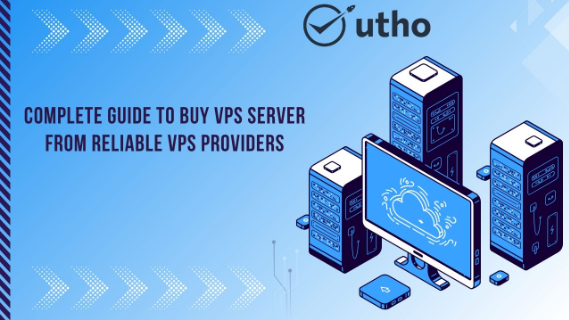With the modern digitally connected world, having a website or application requires more than a standard web hosting plan. While companies expand, so does their demand for increased performance, reliability, and server environment control. This is where Virtual Private Servers (VPS) fit in. Providing a middle ground between shared hosting and dedicated servers, VPS hosting is an intelligent option for developers, startups, and enterprises.
If you are considering buy vps server for your business or project, it is essential to know what VPS hosting involves and how to select a provider that suits your needs. In this guide, you will be informed about the decisions you should make to maximize your investment.
What is a VPS Server?
A Virtual Private Server (VPS) is a virtualized server that emulates a dedicated server within a shared hosting setup. You do share the physical server with other users, but individual VPSs are separated and have their own operating systems, providing you with dedicated resources like CPU, RAM, and storage. This provides improved performance, added security, and complete control of the hosting environment.
Why use VPS over Shared Hosting?
In contrast to shared hosting, where resources are shared between numerous users, VPS hosting provides a more solid and secure alternative. It gives the liberty to set up the server as per your needs, install special software, and handle traffic spikes better. It suits websites with moderate to heavy traffic, online businesses, SaaS applications, and custom-built applications that need a secure and personalized server.
Key Features to Consider for a VPS Server
Before purchasing a VPS server, you need to analyze the features provided by various companies. Some of the key features to look for are as follows:
- Performance and Uptime: Ensure SSD storage, latest CPUs, and assured uptime of 99.9% or more.
- Scaling: Opt for a plan that can scale up according to your needs without any migration hassle.
- Operating System Options: Ensure that you have an option between Linux and Windows based on the needs of your applications.
- Full Root Access: This is vital if you require administrative access for installing and setting up custom software.
- Managed vs. Unmanaged VPS: If you are technically inclined, an unmanaged VPS may prove to be economical. Otherwise, a managed VPS handles upgrades, security patches, and technical support.
- Security: Features such as DDoS protection, firewall configuration, and regular backups are essential.
- Customer Support: 24/7 support via chat, email, or phone ensures help is available whenever needed.
How to Choose Reliable VPS Providers
The market is flooded with top VPS providers offering a wide range of services and pricing. Choosing the right one can be overwhelming, but the following criteria can help narrow your options:
- Reputation and Reviews: Search for customer reviews, third-party review sites, and industry awards.
- Transparency in Pricing: Steer clear of providers with unexpected charges. Ensure renewal prices and refunds are transparent.
- Data Center Locations: Opt for a provider with data centers close to your target audience for quicker site loading.
- Trial Periods or Money-Back Guarantee: This indicates the provider’s faith in their service and provides you with an opportunity to experiment with their offering.
Some popular VPS providers available in the market are DigitalOcean, Linode, Vultr, Kamatera, and Hostinger. They have different plans for different use cases, ranging from small blogs to enterprise-level apps.
Steps to Purchase a VPS Server
Below is a quick overview of the usual steps:
Step 1: Define Your Requirements: Determine what resources and control level you require.
Step 2: Research Providers: Compare on performance, features, and price.
Step 3: Choose a Plan: Select a package that suits your requirements today with enough potential to grow.
Step 4: Configure Server Settings: Select OS, data center, and add-ons.
Step 5: Deploy and Access: Post payment, you will be provided with login credentials through which you can access and manage your VPS.
Final Thoughts
Choosing VPS is a smart decision that brings flexibility, improved performance, and improved control. But equally significant is choosing the right provider that will provide regular uptime, great support, and good security. With this guide, you can make the purchase of a VPS server from a provider who suits your technical requirements and business aspirations confidently.

